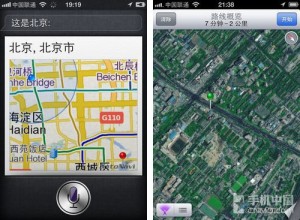 Chinese e-commerce giant Alibaba Group is offering to pay US$1.1 billion to buy one of the country’s largest mapping providers, as part of its strategy to boost its mobile services.
Chinese e-commerce giant Alibaba Group is offering to pay US$1.1 billion to buy one of the country’s largest mapping providers, as part of its strategy to boost its mobile services.
On Monday, the company offered to buy the remaining shares in AutoNavi. Last May, it had acquired a 28 percent stake in the mapping provider for $294 million, as part of collaborative deal to share data between the companies.
Alibaba runs two of China’s largest retail sites – Tmall.com and Taobao.com, but the e-commerce giant also has interests in search, cloud computing services and mobile phone software.
By buying the rest of AutoNavi, Alibaba would be tapping into another major way to funnel users to its e-commerce services. This year, about 47 million Chinese users are expected to use mobile mapping services each day, according to Beijing-based research firm Analysys International. By 2016, that number will reach 112 million users.
In a letter to AutoNavi, Alibaba said it would be better for the mapping provider to join forces with the e-commerce giant, rather than go it alone. “Several larger, well-capitalised” rivals are becoming major competitors in mapping, Alibaba added, without naming the rivals.
One such company rising in the maps market is Baidu, China’s largest search engine, which is investing in developing its mobile services. Tencent is another Chinese Internet giant also with its own dedicated online mapping service.
Both Baidu and Tencent have tried to rival Alibaba in e-commerce. By further developing their mapping software, the companies could run services that conveniently direct users to stores and merchants within their vicinity, and also highlight nearby deals on products.
AutoNavi said on Monday it is forming a committee to consider Alibaba’s offer. In addition to offering its own mobile mapping app, AutoNavi also licenses out its navigation data to many partners. Some of them are car makers including BMW, Toyota and Honda. But the company has also worked with Chinese Internet sites and mobile handset makers Apple and Samsung to power their mapping services.





